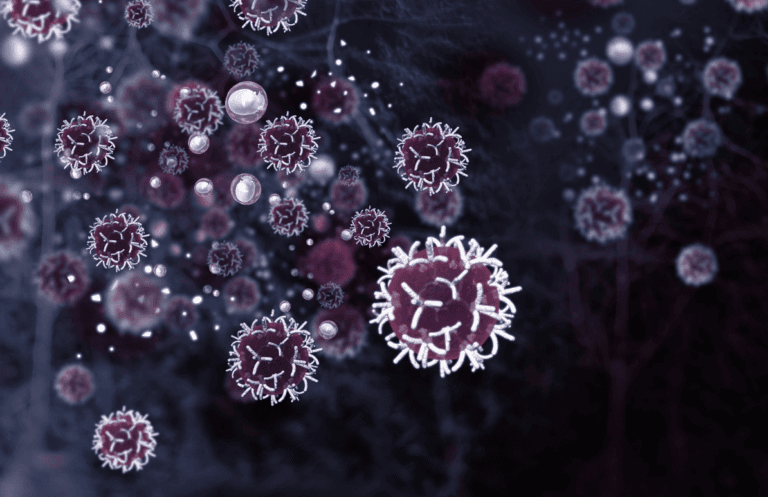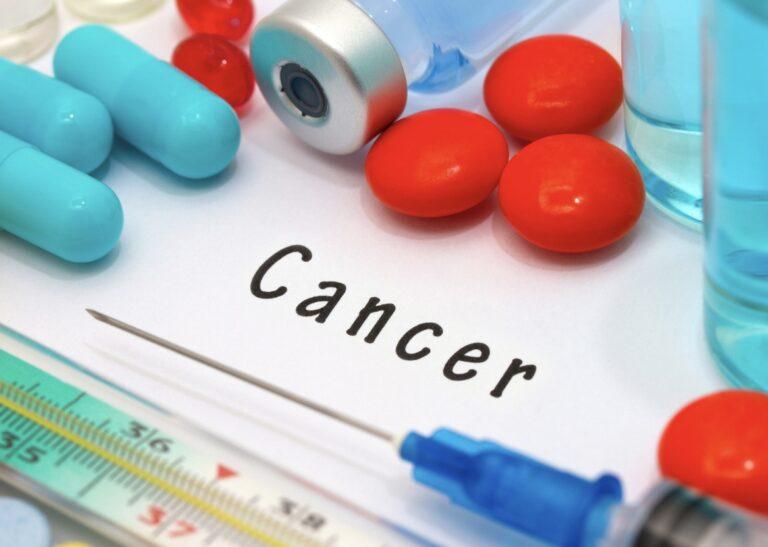Are you aware of the early warning signs of cancer? Early detection can save lives, and being knowledgeable about what to look out for is crucial. In this blog post, we will take a look at the seven warning signs of cancer that patients should be aware of. By understanding these symptoms, you can seek medical attention promptly and increase your chances of successful treatment.
What is Cancer?
Cancer is a disease that occurs when abnormal cells grow uncontrollably and form a mass called a tumour. Cancer can affect anyone, regardless of age, gender or ethnicity. Cancer research has made great strides in recent years, and early detection through cancer screening can greatly increase the chance of successful treatment. Although cancer can be a devastating diagnosis, many cancer patients beat the disease and go on to live long and healthy lives. The body’s immune system plays a crucial role in fighting cancer, and taking steps to boost your immune system can help decrease the risk of developing the disease. Risk factors, such as smoking, exposure to certain chemicals and genetic predisposition, can also increase the likelihood of developing cancer. It’s important to be aware of these risk factors and take steps to reduce them wherever possible.
Different types of cancers
There are many different types of cancer, each with its unique characteristics. Breast cancer is often talked about, but did you know that men can also develop breast cancer? Prostate cancer is common in men and early detection can be key in successful treatment. Ovarian cancer is often difficult to detect in its early stages, so it is important to know your risk factors and talk to your doctor if you have concerns. Stomach cancer can be caused by a variety of factors, including diet and lifestyle, and can cause symptoms like indigestion and heartburn. Lymphoma is a cancer of the immune system and can affect both children and adults. Finally, Cervical cancer can often be prevented through regular screenings and getting the HPV vaccine. Remember, no matter what type of cancer you may be facing, there are always resources and support available to help you through your journey.
Warning signs of cancer
Unexplained weight loss
Unexplained weight loss is often a symptom of cancer. When you lose weight without any explanation, such as changes in diet or exercise, it may be indicative of an underlying health issue. Unintentional weight loss can occur with different types of cancers, including pancreatic and lung cancer. If you experience sudden weight loss, this should not be ignored and medical attention should be sought.
In addition to unexplained weight loss, other warning signs that may indicate cancer include unusual bleeding or discharge from the body, persistent coughs or hoarseness, difficulty swallowing and skin changes like thickening or the development of new moles. It’s important to pay attention to your body and seek medical advice if these symptoms persist. Early detection is key when it comes to treating cancer effectively – so don’t delay seeking help from a healthcare provider if you are experiencing any concerning symptoms related to unexplained weight loss or other potential warning signs for cancer.
Persistent cough or hoarseness
If you have a persistent cough or hoarseness that lasts longer than two weeks, it could be a warning sign of cancer. It’s important to pay attention to any changes in your body and seek medical attention if needed. Some other symptoms to look out for include:
- Chest pain
- Shortness of breath
- Difficulty breathing
Don’t ignore these symptoms as they may indicate something more serious. If you’re concerned about any changes in your health, talk with your doctor and get the necessary tests done as soon as possible.
Remember that early detection is key when it comes to cancer so don’t hesitate to reach out for help if you need it. Your health should always be a top priority.
Changes in bowel or bladder habits
If you notice any changes in your bowel habits, such as blood in the stool or constipation/diarrhoea that lasts more than a few days, you must consult your healthcare provider. Additionally, if you experience any of these symptoms related to bladder habits, like frequent urination or pain during urination/sexual intercourse, it could indicate underlying health issues.
- Blood in stool or urine
- Constipation or diarrhoea that lasts for more than a few days
- Frequently passing urine
- Pain during urination/sexual intercourse
It’s crucial not to ignore these warning signs and seek medical attention promptly. Early detection can lead to better outcomes and save lives.
Difficulty Swallowing
If you have difficulty swallowing and experience painful swallowing or feel like food is stuck in your throat, it could be a sign of a serious health condition such as cancer. This symptom should not be ignored and requires immediate evaluation by a healthcare professional. If accompanied by other warning signs such as unexplained weight loss, fatigue, or fever, it may indicate the presence of cancer in the oesophagus or throat. If you are experiencing any of these symptoms, do not hesitate to seek medical attention from an oncology specialist.
Difficulty swallowing, especially if accompanied by other symptoms like unexplained weight loss or soreness in the neck, may indicate the presence of cancer and requires immediate evaluation by a healthcare professional.
Thickening or soreness in the neck area may also be present along with difficulty swallowing due to tumours growing in this region. It is important to note that while these symptoms can be alarming and concerning, they can also have explanations unrelated to cancer and only a medical professional can provide an accurate diagnosis after thorough examination and testing has been completed.
Persistent tiredness or weakness
Loss of appetite, muscle weakness and aches can be warning signs of cancer. If you are experiencing persistent fatigue or weakness along with these symptoms, it’s important to speak with your doctor. Fatigue is a common symptom in many illnesses, and is not always cancer-related but when paired with other warning signs like unexplained weight loss or fever, it could be an indicator of something more serious like cancer.
It’s also important to note that bladder and bowel changes, bloating and breast changes can also accompany persistent fatigue or weakness as warning signs for cancer. If you experience any combination of these symptoms for an extended period without explanation, it’s best to consult your healthcare provider immediately.
Skin Changes
Unusual moles, warts, freckles or birthmarks can be warning signs of skin cancer. To detect them early, you should follow the “ABCDE” rule: check for asymmetry, border irregularity, colour variation and diameter greater than a pencil eraser. Another helpful tool is the “EFG” rule: look for evolution (changes over time), firmness to the touch and growing progressively larger lesions.
It’s important to pay attention to any changes in your skin as they may indicate something more serious. If you notice a new sore that does not heal or thickens patches on your skin, it’s crucial to seek medical attention immediately. Keep in mind that detecting these warning signs early can significantly improve your chances of successful treatment and recovery.
Unusual Bleeding or Discharge
Unusual bleeding or discharge can be a warning sign of cancer. For women, vaginal bleeding between periods could indicate an issue with the reproductive system. Men who experience blood in their semen should also seek medical attention. Additionally, unexplained heavy bleeding from any part of the body should not be ignored and warrants a visit to the doctor.
In some cases, unusual bleeding or discharge may occur along with other symptoms such as bloating, breast changes, fatigue, fever, pain or skin changes. If you experience any of these symptoms along with unusual bleeding or discharge it is important to speak with your healthcare provider immediately to determine whether further evaluation is necessary. Remember that early detection is key when it comes to cancer and seeking help promptly can improve your chances for successful treatment and recovery.
Recognising the warning signs of cancer is critical for early detection and treatment. While these seven signs are among the most common and important to watch out for, many other potential symptoms may indicate cancer. These include jaundice (yellowing of eyes or fingertips), night sweats and indigestion. Be sure to attend regular check-ups with your healthcare provider and listen to your body. Remember, early detection is key to effectively treating cancer and improving outcomes.
Sources
Medical Disclaimer
NowPatient has taken all reasonable steps to ensure that all material is factually accurate, complete, and current. However, the knowledge and experience of a qualified healthcare professional should always be sought after instead of using the information on this page. Before taking any drug, you should always speak to your doctor or another qualified healthcare provider.
The information provided here about medications is subject to change and is not meant to include all uses, precautions, warnings, directions, drug interactions, allergic reactions, or negative effects. The absence of warnings or other information for a particular medication does not imply that the medication or medication combination is appropriate for all patients or for all possible purposes.









